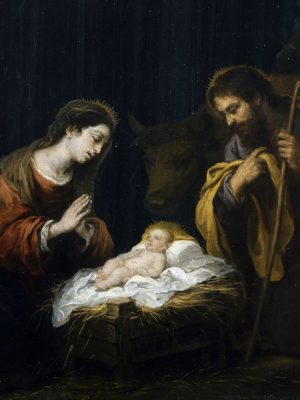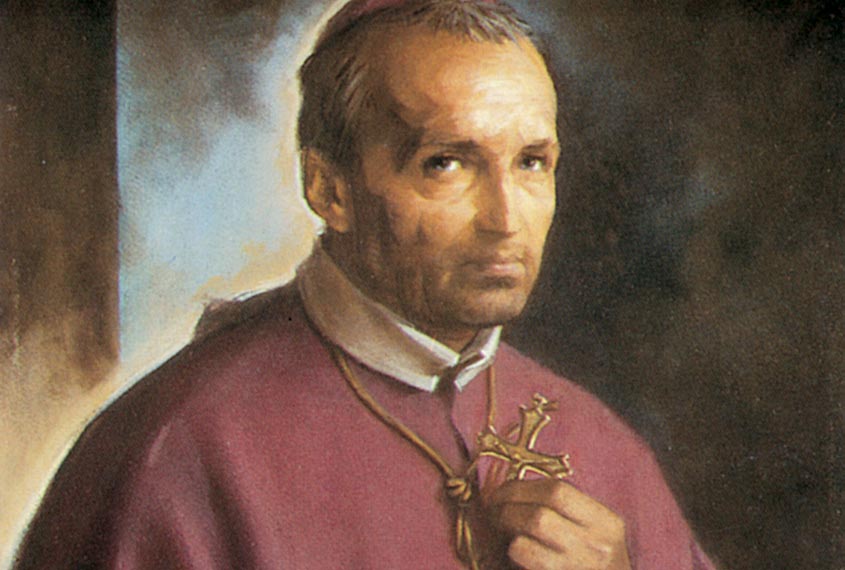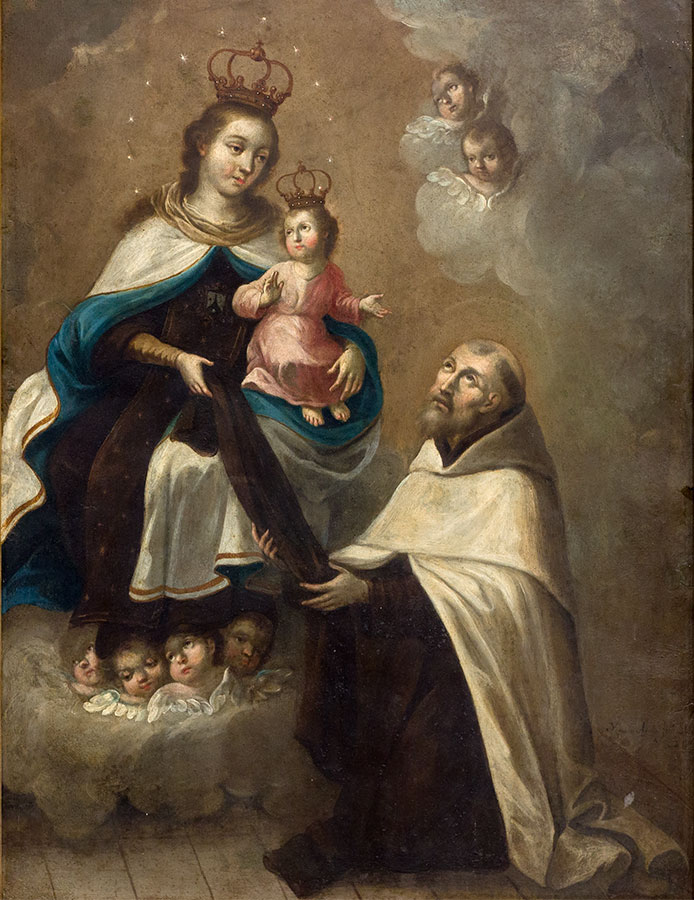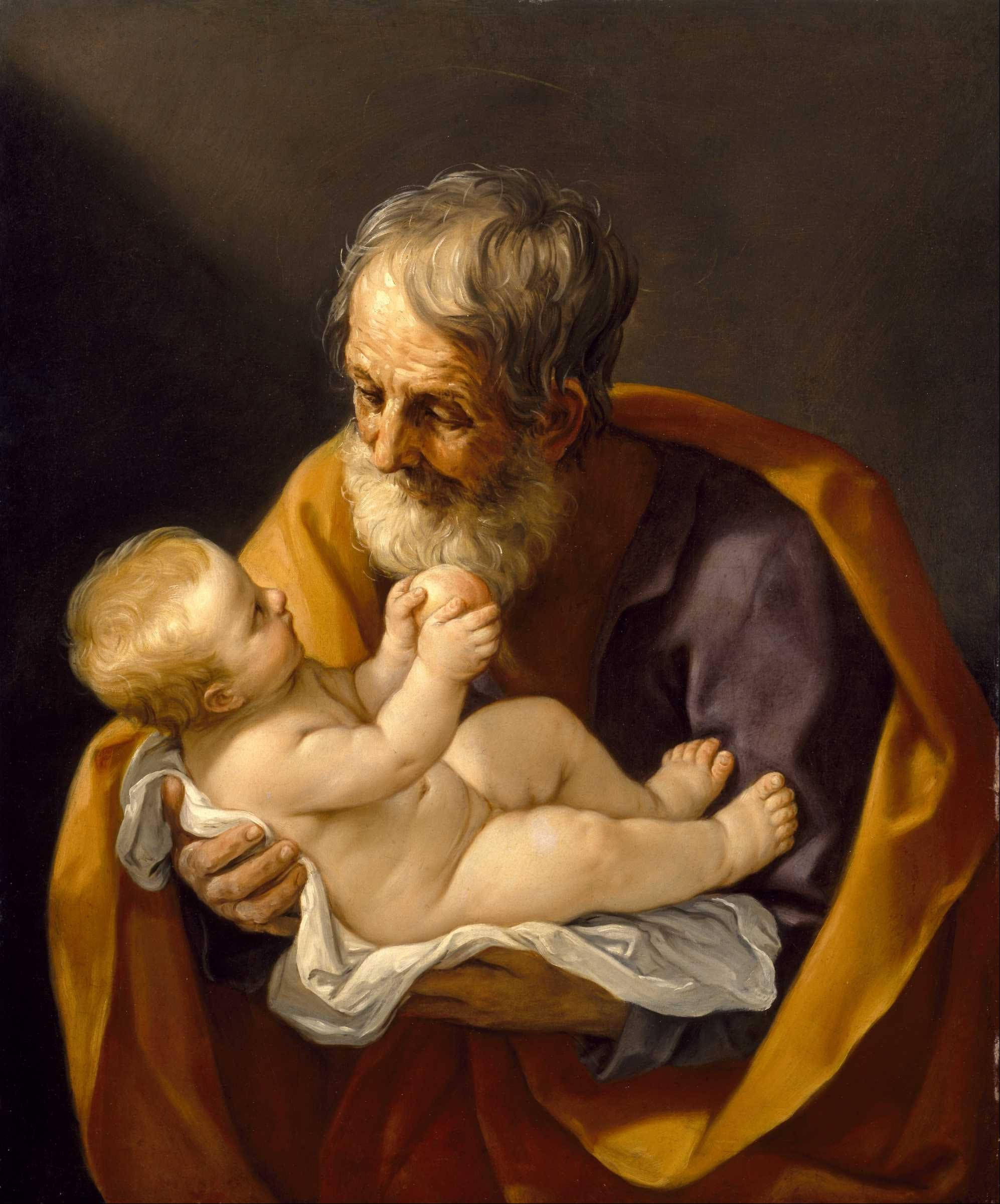Meditate with Saint Alphonsus Liguori upon the mystery of the Incarnation. Make room in your heart as you ponder the infinite love of God who became an infant for the love of mankind. This excerpt was taken from The Incarnation, Birth, and Infancy of Jesus Christ.
For the Love of Man
Plato said that Love is the loadstone of love. Hence comes the common proverb, as St. John Chrysostom remarks: “If you wish to be loved, love,” for certainly there is no more effectual means to secure for one’s self the affections of another than to love him, and to make him aware that he is loved.
But, my Jesus, this rule, this proverb, holds good for others, holds good for all, but not for Thee. Men are grateful to all, but not to Thee. Thou art at a loss what further to do, to show men the love Thou bearest them; Thou hast positively nothing more to do, to allure the affections of men; yet, in point of fact, how many are there among mankind who love Thee? Alas! the greatest number, we may say, nearly all, not only do not love Thee, but they offend Thee and despise Thee.
And shall we stand in the ranks of these heartless wretches? God has not earned this at our hands; that God, so good, so tender of us, who, being great, and of infinite greatness, has thought fit to make himself little in order to be loved by us. Let us seek light from Jesus and Mary.
The Greatness of God
To compass the idea of the immense love of God to men in becoming himself a man and a feeble child for our love, it would be necessary to comprehend his greatness. But what mind of man or angel can conceive the greatness of God, which is indeed infinite?
St. Ambrose says that to say God is greater than the heavens, than all kings, all saints, all angels, is to do an injury to God; just as it would be an injury to a prince to say that he was greater than a blade of grass, or a small fly. God is greatness itself, and all greatness together is but the smallest atom of the greatness of God.
David, contemplating the divine greatness, and seeing that he could not and never would be able to comprehend it, could only say, O Lord, who is like to Thee. O Lord, what greatness shall ever be found like to Thine? And how in truth should David ever be able to comprehend it, since his understanding was but finite, and God’s greatness infinite? Great is the Lord, and greatly to be praised; and of His greatness there is no end. Do I not fill heaven and earth, saith the Lord. Thus all of us, according to our mode of understanding, are nothing but so many miserable little fishes, living in this immense ocean of the essence of God: In Him we live, move, and be.
The Eternal Word Becomes an Infant
What are we, then, in respect to God? And what are all men, all monarchs of earth, and even all saints and all angels of heaven, confronted with the infinite greatness of God? We are all like or even smaller than a grain of sand in comparison with the rest of the earth: Behold, says the prophet Isaias, the Gentiles are as a drop of a bucket, and are counted as the smallest grain of a balance; behold, the islands are as little dust. . . . All nations are before Him as if they had no being at all.
Now this God, so great, has become a little infant; and for whom? A child is born to us: for us he is born. And wherefore? St. Ambrose gives us the answer: “He is a little one, that you might be a perfect man; he is bound in swaddling-clothes, that you might be unbound from the fetters of death; he is on earth, that you might be in heaven.”
Behold, then, the Immensity become an infant, whom the heavens cannot contain: see him imprisoned in poor rags, and laid in a narrow vile manger on a bundle of straw, which was at once his only bed and pillow. “See,” says St. Bernard—“see power is ruled, wisdom instructed, virtue sustained. God taking milk and weeping, but comforting the afflicted!” A God Almighty so tightly wrapped in swathing-bands that he cannot stir! A God who knows all things, made mute and speechless! A God who rules heaven and earth needing to be carried in the arms! A God who feeds all men and animals, himself having need of a little milk to support him! A God who consoles the afflicted, and is the joy of paradise, himself weeps and moans and has to be comforted by another!
Emptied for the Love of Man
In fine, St. Paul says that the Son of God, coming on earth, emptied Himself. He annihilated himself, so to say. And why? To save man and to be loved by man. “Where Thou didst empty Thyself,” says St. Bernard, “there did mercy, there did charity, more brilliantly appear.” Yes, my dear Redeemer, in proportion as Thy abasement was great in becoming man and in being born an infant, so were Thy mercy and love shown to be greater towards us, and this with a view to win over our hearts to Thyself.
ooo
This article is taken from a chapter in The Incarnation, Birth, and Infancy of Jesus Christ by Saint Alphonsus Liguori which is available from TAN Books.








